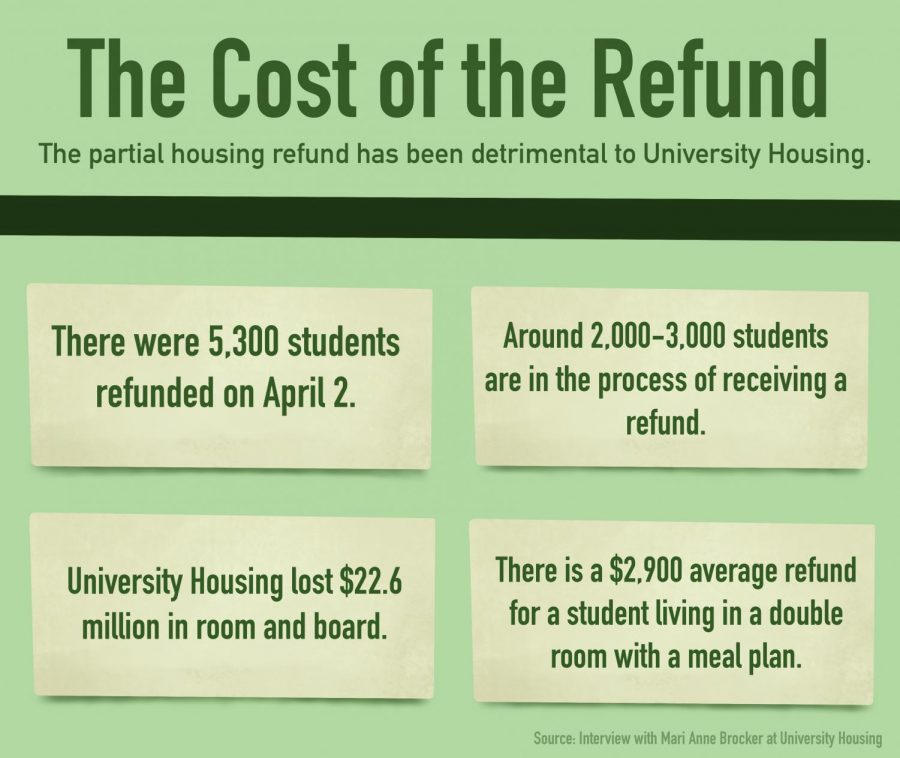University Housing prorates room and board fees
Apr 15, 2020
The University has prorated room and board and meal plan costs for students who moved out of University Housing early.
The amount refunded for housing and dining is around $2,900 for the average student living in a double room with a meal plan, according to Mari Anne Brocker Curry, associate director for Housing Information and Marketing.
Around 8,000 students have received or will receive partial refunds of these costs. In addition, 40,000 students had adjustments to their University Transport Fees covering local transit costs, and 33,700 students had adjustments to their University Service Fees, according to Robin Kaler, associate chancellor for Public Affairs at the University. The Transport Fee credit is $33, while the Service Fee credit is $157.
In addition to prorating fees for students moving out of dorms, the University provided students who remained in University Housing with a new room at Pennsylvania Avenue Residence Hall and a refund of some fees for their previous room.
“We chose Pennsylvania Avenue for a couple of different reasons,” Brocker said. “These include the individual-use bathrooms, the ability to space out room assignments and a dining hall located within the building.”
Get The Daily Illini in your inbox!
Ethan Du, freshman in LAS, remained on campus and received a refund for housing fees after moving to Babcock Hall in PAR.
“Housing promised to allow students continuing to live on campus to keep their current housing rate, meaning that the refund for the old room and the charge for the new room would come out as zero,” Du said. “The refunds were extremely generous by allowing the proration of student fees if one decided to leave campus housing.”
These proration measures have cost the University $29,100,000. This includes $22,500,000 from University Housing and Dining. This expense arises as only about 500 students remain in the dorms for extended housing. This should not affect projects such as the ISR renovations, scheduled to be completed in the fall, but other housing projects may be delayed.
“Our funding comes completely from room and board dollars,” Brocker said. “The rates that students pay to live in Housing is our sole source of revenue, and we are not state funded, like other entities on campus. Decisions about what projects can be continued and what projects need to be postponed or paused are conversations that we are having, but it’s too early to know for sure which ones will be impacted.”
The University has no plans to issue further refunds or prorate any other tuition or fees.
“We have every confidence that the courses we offer can achieve the desired student learning outcomes,” Kaler said.






